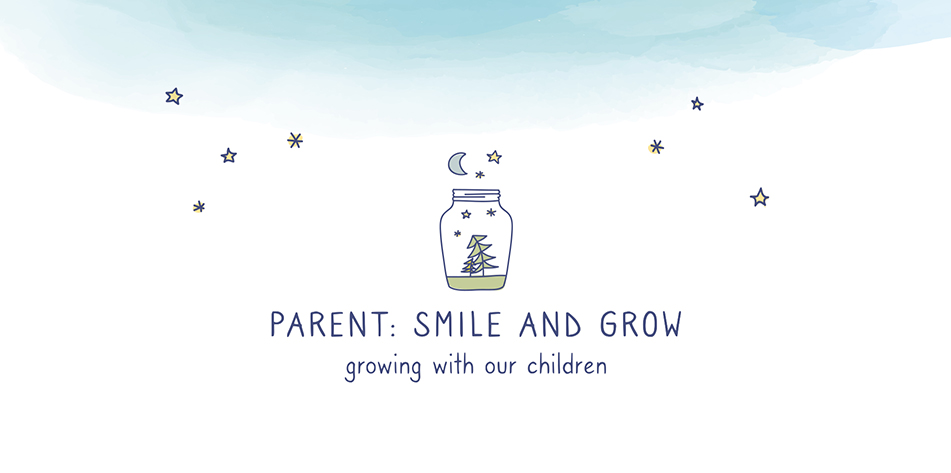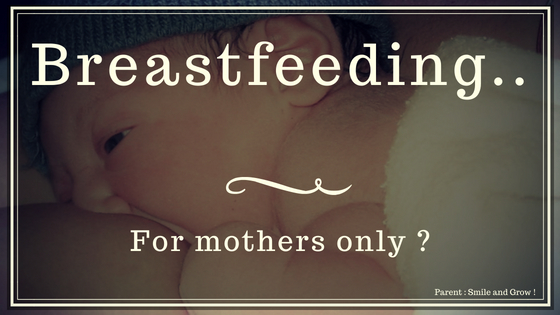You may be pregnant and have many questions about breastfeeding. Or maybe you have a colleague on maternity leave; and you wonder if breastfeeding will affect her return to work … you too have an important role. How? Read here! A reflection on breastfeeding, its benefits; its importance to society, and our role to play..
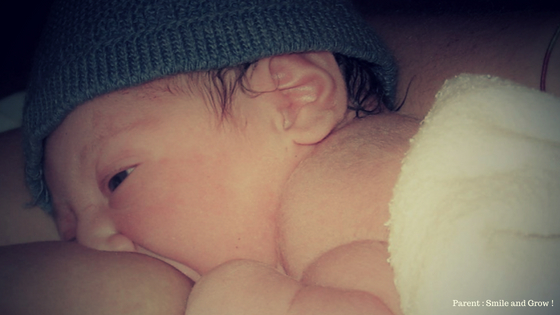
Table of Contents
I’m pregnant.. should I think about breastfeeding now?
My children are born in France. It was then when I truly felt the strongest cultural differences with Italy. My boss, while I was pregnant, asked me if I thought I would breastfeed. The question puzzled me a bit: why was it not obvious that I would at least try breastfeeding? Did he just want to know if I would have stayed home on parental leave longer than expected?
Many other people asked me the same question and I understood that it was without malevolence. In France, women claim their independence, acquired when baby’s bottle was freed from its intrinsic concept of guilt, inadequate mother; and they were able to choose whether to breastfeed or not.
The switch to artificial milk makes it easier to distribute the tasks related to feeding the baby with the partner; to come back work earlier, and not to depend on baby’s needs for a long time (I’m obviously simplifying a bit).
In Italy, I think we don’t ask ourselves the question as much. If it’s possible, then breastfeeding is considered normal. The choice is perhaps less free from cultural conditioning …
But I found it absolutely natural to wanting to take care of my creature with breastfeeding. In addition, I have always heard that breast milk is healthier, transmits antibodies, contains all the nutrients the child needs.
Too bad no one warned me that .. it’s not that simple!
Moms-to-be, partners and managers: five things to know about breastfeeding
-
It’s painful. Only the first days, but know it. Better to arm yourself with patience – it’s just for a short time. And with a nice protective cream for nipples (On the advice of my midwife, I used Medela's Purelan; I haven’t tried any other, so I can’t compare, but it certainly works well. )
-
Better to drink like camels before a trip to the desert. Like a lot of water, really liters and liters. It will seem obvious … well … it wasn’t for me at the time, as I will tell you below.
-
The double electric breast pump will save you. It will make you feel like a dairy cow, but it’ll become a valuable ally. Ask for advice, rent it in the pharmacy, prepare yourself psychologically, but don’t ever neglect it!
-
Unless you want to lock yourself home, be ready to breastfeed in public. Find the most appropriate solutions for the situation, but don’t worry about any eventual disapproving look.
-
If you are planning to go back to work and continue breastfeeding, get ready for fatigue and guilt, because you will suddenly live on two fronts .. well, in fact, this will long exceed breastfeeding!
- Ok I’ll add a sixth one.. It is, truly, a wonderful bonding experience. I’m not regretting any single bit of it..
Come on, let’s go into more detail. I’ll start by telling you how it went for me, and why I find breastfeeding so important to us all.
The first few days
How do you actually breastfeed? How should I hold the baby and how can I help him take the nipple correctly? Will the milk come? Midwives, doctors, people came and went, and I did not quite understand. In my still awkward arms, a little wrinkled tiny creature. I looked at her, marveling at her, and yet wondering.. what do I do now? With each passing of someone in a white blouse, I cast a desperately questioning look. So, has the milk arrived? They asked me during the visits. I don’t know .. How do you know?
You just have to wait .. Meanwhile, the baby loses weight .. it seems a race against time. Will I make it? Am I doing everything right? Am I already a bad mother?
Breastfeeding and early difficulties
Looking back, I reckon breastfeeding my daughter was a bit difficult . She had colic (or at least, that’s how we interpreted her heavy crying); when about two months old she started looking for my breast, then rejecting it while crying desperately .
I probably didn’t have enough milk; and I only realized it when, anticipating my return to work, I started to pump my milk and to make her drink from the bottle, to get her a little used to it.
Not only after spending half an hour with the breast pump, I had only 10 ml; my daughter didn’t want to suckle from me anymore. Much easier and faster with the bottle. So I tried breastfeeding teas, I insisted, I pulled and pumped ..
I must admit that I had a hard time accepting it. To me, my daughter was just refusing me, while I was not yet ready to stop breastfeeding. For up to 7 months, I continued with the breast pump. She only took my breast in the morning when I had plenty of milk, and always had to make integrations of artificial milk because mine was not enough.
Earlier, I wrote that I hadn’t understood the connection between the water I drank and my milk production. I have always drunk very very little. Simply, I wasn’t thirsty; and when I increased my daily glasses, I had to have toilets available every hour.
With the second child, I wanted to “do it better”. I started drinking more during pregnancy and got used to it. During his breastfeeding, I drank 4 liters of water a day. And the milk was finally enough, I managed to give my milk exclusively for 8 months.
Easy as drinking a glass of water .. but it took me countless attempts and even crying to understand it!
On breastfeeding and the joys of the breast pump
Let’s talk about the breast pump, hum? It certainly deserves a paragraph on its own!
I started with the manual, single pump, always from Medela. You pump, first one breast then the other. The first time I felt like a cow, it was humiliating. Then, of course, I got used to it and started to laugh …
At the time, in my office, we didn’t have an adequate room, and so I locked myself in the toilet to draw the milk. I was hoping that no one would hear that sound of sucked-in air, as if I was swelling the bike wheel ..!
Little note to myself: as if I should be ashamed .. as I was doing everything to continue breastfeeding despite my return to work! I should have been proud of it!
Second pregnancy. Let’s not repeat the same mistakes! I equipped myself with a very modern (and very heavy!) electric double pump. SO much time saved !
(Why a breast pump by the way ?)
One could naively ask : what is the use of a breast pump, if you want to breastfeed? I thought so too. I was expecting to need it just to be able to continue breastfeeding once I got back to work, to give it to the nanny.
One day, my daughter slept more than usual and ate less. Until the day before, however, she had claimed the breast every hour .. Ahh the growth charts! After 8 hours, I had 38 fever and very strong pains in my breast.
I called the midwife: beginning of inflammation. If your daughter does not eat as usual, pump the milk regularly to empty the breasts as much as possible.
Ahhhh! Almost immediate relief. When the problem came back with my second child, I knew the symptoms and I had the breast pump already available 😉
A little, practical diversion for moms
There also are other issues that may torment new mothers. Like, shall I give both breasts at each meal, starting once from the right one and once from the left; or just one at a time? Different philosophies for that too ..
The first milk being the lighter, some advise to first completely empty one of the two breasts, because the baby receives a more balanced nutritional intake.
However, baby doesn’t eat the same amount of milk at each meal and doesn’t eat at regular intervals. Therefore, if following this “technique”, we risk leaving full one of the two breasts, longer than expected.
Translated : risk of inflammation as above, if you are potentially subject to it like me; or leave unpleasant traces of milk on T-shirts, if you are the type to which the milk flows.
(I imagine it is unpleasant, but I still envy you a little .. It never happened to me and I often felt “inadequate” for not having such an abundance; but hey, we are as we are).
The looks of the world on the breastfeeding mother
Shall we talk about the fact that in many public places breastfeeding is difficult ? That a woman who is breastfeeding is not always well seen? Why shouldn’t we consider it as a truly valuable investment for the future of our society?
A mother who feeds her child, whether breastfeeding or giving the bottle, should be considered for what it is : she is accompanying a newcomer to grow up and become a responsible adult one day. Part of his health and physical and psychological balance depends on how his parents have been caring for him since birth.
Should not we be wondering how to give today’s parents the best possible conditions to make the most of the future adults who will lead our world of tomorrow? Should not this affect us and concern us all?
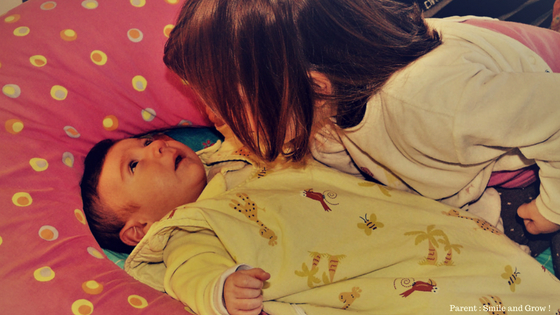
A society supporting the parents
The main reason why I believe it is the duty of our whole society to support new parents is this. A serene parent connects more easily with his baby. Not only does he understand better and faster his needs, but also transmits his serenity. And in turn, this serenity leads to the correct formation of neuronal connections, allowing optimal development of the baby’s brain.
Summarizing: serene parent = serene baby = well-formed brain = future emotionally balanced adult.
If that sounds like nothing to you …
(The subject is vast and I will write more in the future. If you are interested, in the meantime I recommend this book.)
But when I talk about supporting parents, I’m not just talking about an adequate legislative system. It is not only the task of a third formal entity that is far from us. We all have a role to play.
I think about disapproving looks. About disinterest or indifference. Unwanted comments. Interference and judgment. All that contributes to making a new parent feel alone, fragile, under pressure. Does it ring a bell?
The benefits of breastfeeding
Now, back to the main theme of breastfeeding. Why shall we decide to breastfeed? What are the advantages, since so far we have only spoken of difficulties? Let’s start with the benefits for the woman.
- Savings. According to the US Department of Health, annual savings are estimated at approximately $ 1,350.
- Practicality. Breast milk is immediately ready, when and where you want, at the right temperature.
- Immediately after delivery, breastfeeding helps the uterus to contract and regain its original size.
- Protection against many diseases: type II diabetes, breast, uterus and ovaries’ cancer, stroke and heart disease.
- Faster return to pre-pregnancy weight.
That’s not bad. Let’s also see for the baby:
- Better development of the digestive and immune system.
- Long-term reduction in the risk of obesity.
- Reduced risk of contracting allergies
- Better brain development.
- Better view and psycho-motor development
You will find a rich, in-depth review on breastfeeding, maternal milk’s virtues, and a lot of advice on the Medela website; as well as on the website of NHS; on WebMed; here, 18 Benefits of Breastfeeding and another thorough review on Mumemagic.com, “The Benefits of Breastfeeding“.
If at some point during your journey, you don’t have enough milk, or want to reduce the number of breastfeeding times, you could consider introducing some formula and have the so-called combination feeding – you’ll find a lot of information on this article.
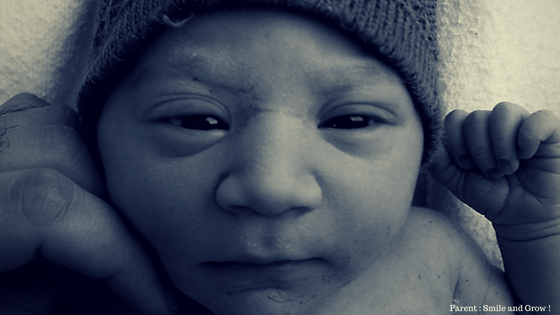
Breastfeeding, back to work …
When my second child arrived, I felt “expert” on the subject of breastfeeding. And I loved it! To the point of continuing breastfeeding despite the resumption of work, with many sacrifices.
I took empty milk bottles to the office, my inseparable breast pump that followed me everywhere; at the desired moment, I slipped quietly into the infirmary / rest room and tried the task of filling a bottle in ten minutes. Almost a competition 🙂
During the lunch break, I would run home and do the same (at least I was more comfortable and I did not have to hide).
I continued until my son was able to hold the bottle alone and started to prefer it to the breast; he had already already integrated almost all the food and took milk only morning and evening. Which was not enough to maintain my milk production. He was 8 months old.
Pretending to be Wonder Woman
I was very lucky in many ways: I have never been under pressure. Instead, I was the one putting me the pressure. Because I wanted to demonstrate that I could do it, that I could do everything, and well. I ran all the time.
Nobody forced me: I chose to go back to work because I wanted to show my investment. I chose to continue breastfeeding. I chose to ask for a part time for a few months.
The reason for these choices often depended on the look I felt from others; but without daring to openly discuss it to check the accuracy of my interpretation. I wanted everything: to be a present mother, to be a busy person at work. An absurd claim?
It was extremely stressful and tiring, because despite giving me 200%, I could not be as efficient as I wanted. At work, I often thought that I would have liked to spend more time with my children; at home, tired, I could not always keep my calm and serenity.
Everything ended up being a priority … it could not work.
…and then, feeling guilty
Now, I wonder: is it possible that even today, we women, we must feel divided and torn in two by guilt regardless of the choice we make? How is it that there is always an incompatibility, partial or total, between maternity and professional life? An “incompatibility” between our being a mother and a thousand other things?
Career women, friends, lovers, nurses, housewives, travelers, volunteers, etc. Why do we still accept this laceration between our multiple roles, which takes away our rights and denies part of us?
I want to have the right to spend time with my children, and not just this time after 6 pm (and still, I’m lucky) between bathing, dining and sleeping, between one whim and another; and I also want to have a professional activity that allows me an economic independence and also, why not, that gives me a possibility of evolve and grow.
I don’t think it’s fair to say that a lot of women have to think, “If I don’t go back to work right after maternity leave, I may not be promoted”; “if I do not stay in the office until late at night, they will immediately call me the mother who put the work in her background”; “They refused to give me the part-time and I don’t know how to do it because my nursery school closes early, I have no family next door, maybe I should quit my job”.
And tell me if I am wrong, in most cases, to think in this way, it is the mothers and less often the fathers. Equality?
Breastfeeding and society
I’ve found this article from WHO with the statistics of breastfeeding in Europe. You can also read this by CNN based on a UNICEF report or this post comparing breastfeeding rates, from a Certified Lactation Consultant; the majority of us breastfeed on average the first 4 months, but very few arrive at exclusive breastfeeding at 6 months.
I’ll present here a few lines from the conclusion of Unicef’s, WHO’s and the Global Brestfeeding Collective’s report on breastfeeding :
Only 23 countries currently have met the 2030 global goal for exclusive breastfeeding at six months. This should stand as an urgent call to action for policy makers worldwide.
Many people understand the importance of breastfeeding, yet too often the responsibility for it is placed entirely on the mother, without any consideration of the political, social, and environmental factors that shape breastfeeding. However, these factors can act as a facilitator or a barrier to individual practices.
Hundreds of thousands of lives could be saved if countries committed to changing their policies and providing greater funding to support breastfeeding.
Breastfeeding is one of the smartest investments to build children’s future and prosperity. Lack of political support and funding is a worldwide problem, and one that must be tackled with great urgency.
Never judge a mother
Ditto. And I emphasize: it is not a matter of judging the choice of a woman, whether she wants to breastfeed or not. It is about creating the best possible conditions so that this choice can be made in a serene way.
And if you are new mothers and you have doubts and questions about breastfeeding or how to feed your child, take a look at the Lèche League website, which promotes breastfeeding and supports mothers who want to breastfeed.
Share your stories and your thoughts on breastfeeding! Do you also think that this is a more global question, or not at all? The debate is open!
Resources
A few useful resources for you to dig deeper if you want!
Note: some links may be affiliate links. It means that if you buy something after clicking, I might get a small commission. All opinions are my own.
- On PrimedParent, you can find an article about the perceived benefits of brestfeeding, which you may find interesting.
-
You may also want to take a look at this very complete article about combination feeding by Yourcub.com: “A Case for Combination Feeding”
